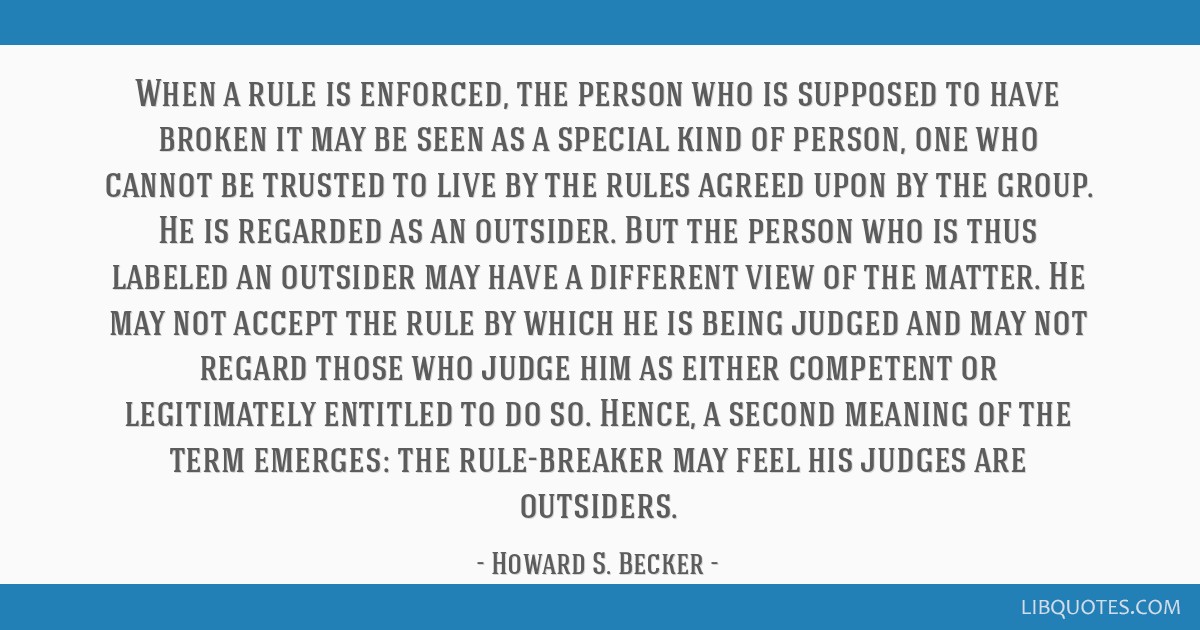When a rule is enforced, the person who is supposed to have broken it may be seen as a special kind of person, one who cannot be trusted to live by the rules agreed upon by the group. He is regarded as an outsider. But the person who is thus labeled an outsider may have a different view of the matter. He may not accept the rule by which he is being judged and may not regard those who judge him as either competent or legitimately entitled to do so. Hence, a second meaning of the term emerges: the rule-breaker may feel his judges are outsiders.
pp. 1-2. - Outsiders: Studies in the Sociology of Deviance (1963)























